Spiritual Truth & Blindness to Reality
An Analysis of King Oedipus & Prince Hamlet
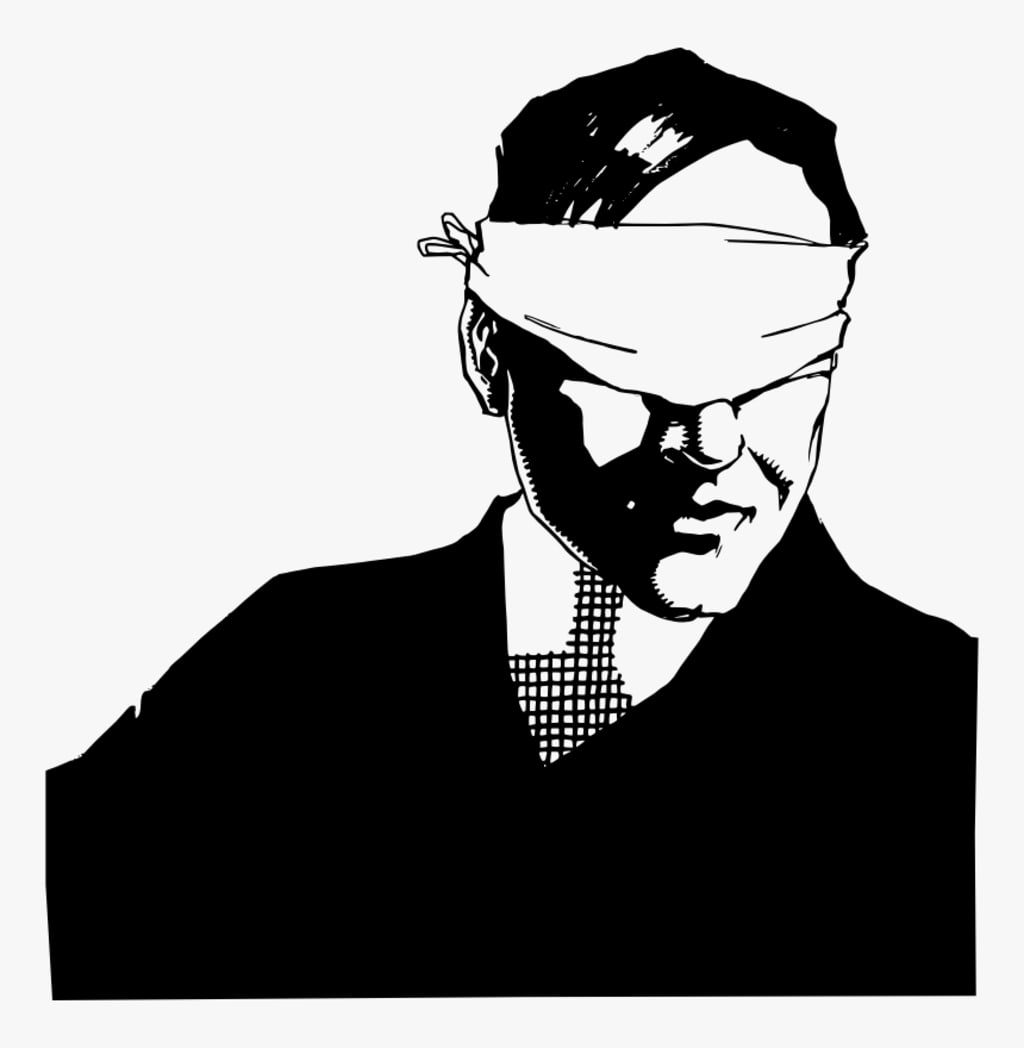
On the stage, the hero’s journey to discover the truth behind the atmosphere of the play and the circumstances which have put these characters into these positions which the audience witnesses from the comfort of their seats, can be seen over and over again through time and history. However, most audiences see only the essential journey for which the story’s protagonist must embark and accomplish, followed by the spectacle which glazes the actions of the protagonist and the other characters which he or she encounters along the way; like hot fudge and caramel on an ice cream sundae. This essay is not shaped for such meager and sportive tricks. The purpose of this essay is to analyze how the protagonist’s journey for spiritual truth, fulfillment of revenge, and fulfillment of redemption in such works as Sophocles’ Oedipus Tyrannous, and William Shakespeare’s The Tragedy of Hamlet, can leave themselves blind to their environmental realities.
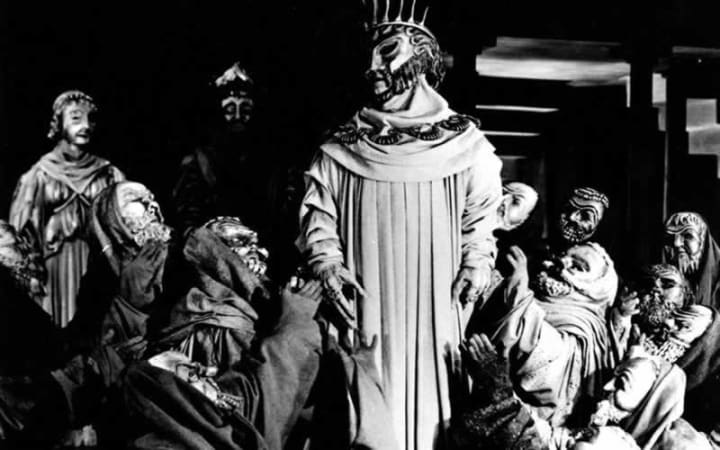
In Sophocles’ tragedy Oedipus Tyrannous, the city-state of Thebes has crowned it’s newest king, Oedipus after the mysterious murder of their previous king, Laius. Upon the coronation of Oedipus and Laius’ wife, Jocasta as queen, the people of Thebes have fallen victim to plague and destruction brought on by Apollo. It is told by the prophets that in order to rid Thebes of this stench of death, the murderer of King Laius must be cursed, caught, and punished. Oedipus vows to accomplish this task to redeem his land and free his people, but he is spiritually blind to the reality of who the murderer really is. One of the prophets (a blind man named Tiresias) tells King Oedipus that he murdered Laius and by killing him and marrying Jocasta he has unwillingly fulfilled a doomed prophecy which was foretold to Laius and Jocasta; their son would kill his father and marry his mother. It is discovered by means of King Oedipus’ search for the killer for when he begins to embrace the reality that he was Laius’ and Jocasta’s son. He was abandoned as a infant, and as he grew to adulthood he killed his father upon his way to relinquish Thebes of the Sphinx, be crowned king thereafter, and take Jocasta (his own mother) as his bride and Queen. By cursing the killer and seeking him out, he has discovered the darkest and most doomed aspect of himself. Through this discovery and search for the truth deemed by the gods, he also redeems the people of Thebes while also personally avenging his misdeeds. He makes himself blind so that he and his fellow people may see the truth.
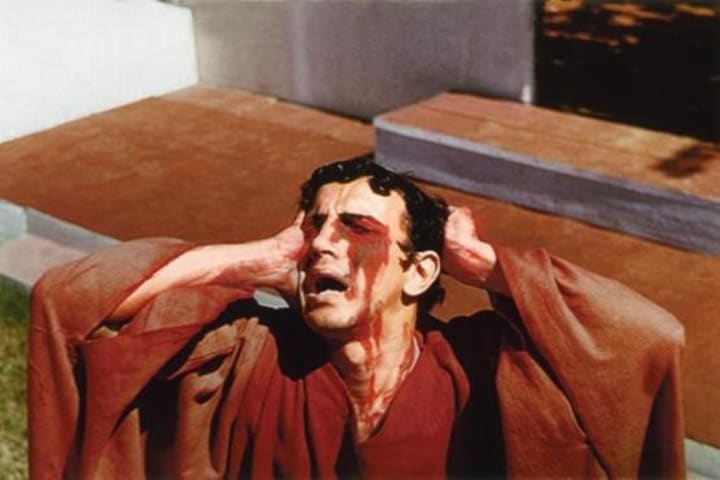
He rips off her brooches, the long gold pins holding her robes - and lifting them high, looking straight up into the points, he digs them down the sockets of his eyes, crying, “You, you’ll see no more the pain I suffered, all the pain I caused! Too long you looked on the ones you never should have seen, blind to the ones you longed to see, to know! Blind from this hour on! Blind in the darkness - blind!” His voice like a dirge, rising, over and over, raising the pins, raking them down his eyes. And at each stroke blood spurts from the roots, splashing his beard, a swirl of it, nerves and clots - black hail of blood pulsing, gushing down. (Fagles 237)
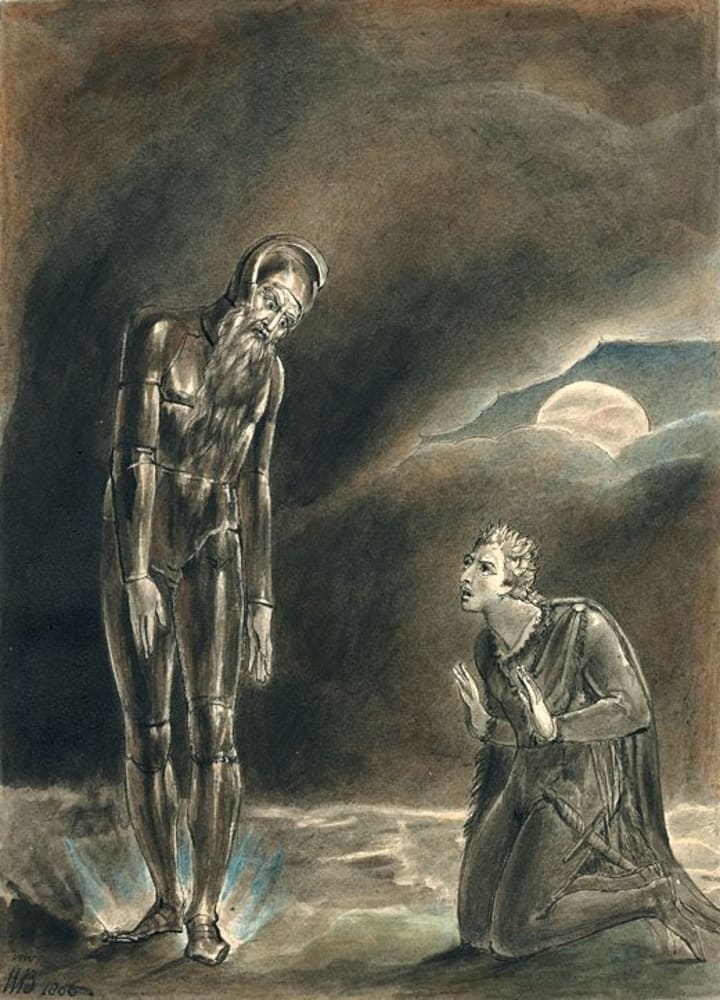
In Shakespeare’s Hamlet there is also a journey for spiritual truth and detection, while also surrounding the faith of a monotheistic religion and a kingdom which has been bestowed to the dead king’s brother rather than the son. Hamlet, the young prince of Denmark, contemplates suicide after his father is declared dead and his uncle Claudius is made king and marries his mother (Gertrude). That is until he encounters the apparent ghost of his father and is assigned by the ghost to avenge his death by killing Claudius; therefore redeeming his spirt from Purgatory and ridding Denmark from the reign of a murderous and treacherous king. Hamlet begins to spy on Claudius, his family, and his fellow nobility, by acting insane. However, as he goes to these extensive lengths to conceal his detective work and avenge the ghost of his father, Hamlet acquires his revenge, but only after consequently destroying the lives of everyone around him for whom he loves; Ophelia is driven insane for reals and drowns herself, Polonius is killed by Hamlet while he threatens Gertrude with his sword, Rosencrantz and Gildenstern are ordered to be killed by Hamlet, and Laertes is killed by Hamlet with the same poisoned fencing sword intended to kill Hamlet. Yet, this is all supposed to amount to the soul of the rightful King Hamlet being freed from the bounds of Purgatory to join the ranks of the Heavens (with his freshly dead son).
HAMLET: O all you host of heaven! O earth! What else? And shall I couple hell? Oh, fie! Hold, hold my heart, and you, my sinews, grow not instant old, but bear me swiftly up. Remember thee? Ay, thou poor ghost, whiles memory holds a seat in this distracted globe. Remember thee? Yea, from the table of my memory I’ll wipe away all trivial fond records, all saws of books, all forms, all pressures past that youth and observation copied there, and thy commandment all alone shall live within the book and volume of my brain unmixed with baser matter. Yes, by heaven! (Greenblatt 1212)
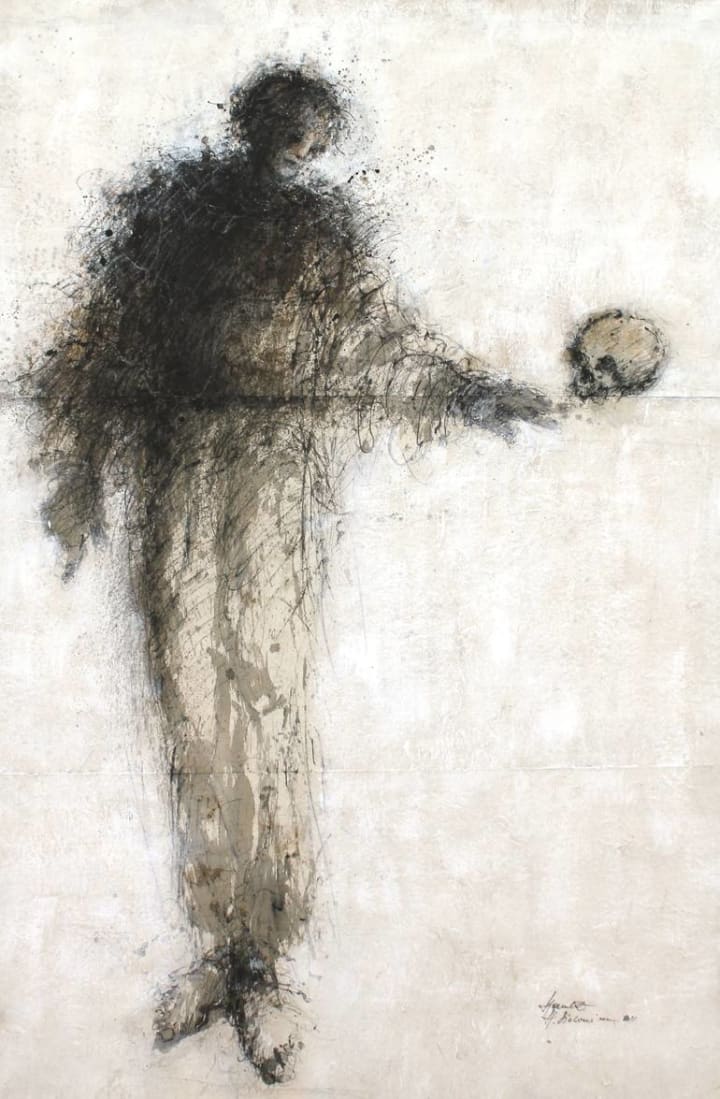
However, this is where the parallels between these these two plays begin to cross. In the case of Oedipus, he is trying to rid the murderer of King Laius, so the gods may be appeased and his fellow people of Thebes will no longer have to suffer. Though it is through his journey that by unwillingly trying to forge his own path to solve this crime, he only discovers that he is the true criminal (guilty of homicide and incest) and must therefore deliver the curses and punishments he vowed to conduct onto himself; serving the ultimate will of the people and the divine. However, in the case of Prince Hamlet, he is trying to appease the divine and one entity (the ghost of his father) by plotting revenge on his uncle who “stole” the throne and married his sister-in-law. He is successful, by killing Claudius and freeing his fathers soul from torment, but at the catastrophic cost of the lives of everyone whom he once loved, including himself. Both men take the ultimate fall, but one does it willingly, while the other is more of an element of collateral damage. Both men are conducting a service to appease the elements of the divine, but for different numbers in terms of quantity. King Oedipus is wishing to be the proper servant of his people, while Hamlet is wishing to serve the will of his father’s ghost. One believes in numerous gods which specify in different aspects of life and the human condition, while the other is a devout Christian, who believes in only one God, but is acting on the will of a ghost.
Yet, amidst these inconsistencies there lies a great contextualization. For as one follows the journey of a hero to seek a greater truth beyond what is acquirable on a daily occurrence by the commonality, the one who follows such a path, becomes blind to the real world for which they have been brought up and can determine the ability to change the faces of such humble and loving environments for better or worse as they discover their personal truth for which they are sought out to find.
Works Cited
- Fagles, Robert. Sophocles: The Three Theban Plays. Antigone, Oedipus the King, Oedipus at Colonus. Penguin Classics, 1984, Print. Accessed August 16, 2020.
- Greenblatt, Stephen. The Norton Shakespeare: Essential Plays - The Sonnets. W. W. Norton & Company Inc. 2016. Print. Accessed August 16, 2020.
About the Creator
Jacob Herr
Born & raised in the American heartland, Jacob Herr graduated from Butler University with a dual degree in theatre & history. He is a rough, tumble, and humble artist, known to write about a little bit of everything.
Enjoyed the story? Support the Creator.
Subscribe for free to receive all their stories in your feed. You could also pledge your support or give them a one-off tip, letting them know you appreciate their work.






Comments
There are no comments for this story
Be the first to respond and start the conversation.